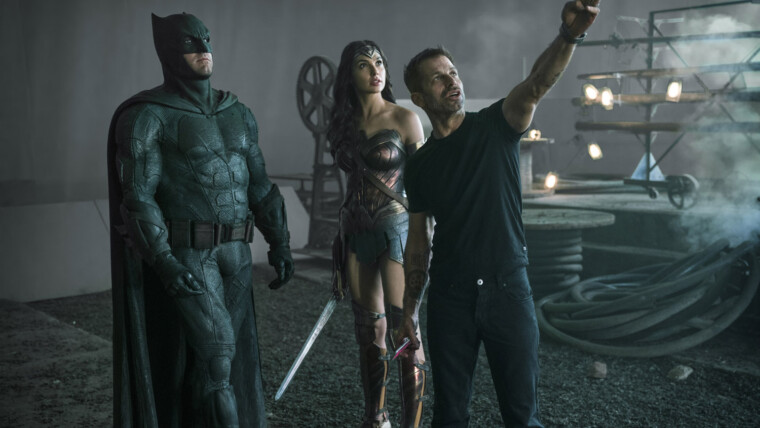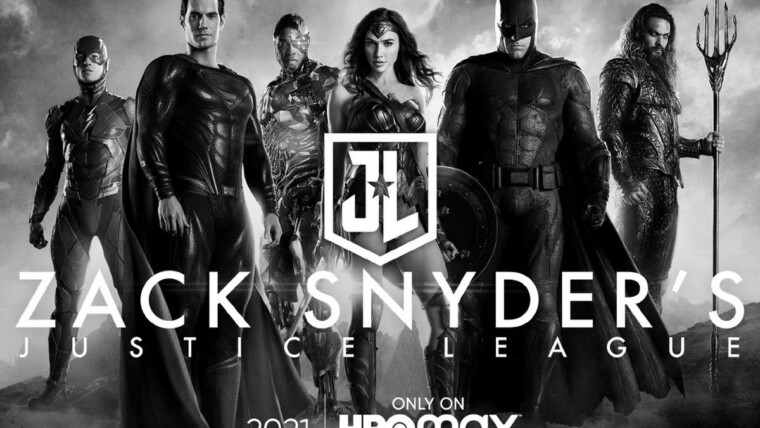Rotten Tomatoes has just revealed the much-anticipated score for Justice League. At the time of the reveal, the film had a certified rotten score of 43% and now stands at a whopping 37%. And with that, DC extremists have gathered the troops, sharpened their pitchforks and are marching towards the Rotten Tomatoes HQ (which they believe is the evil lair of a secret society of critics who are paid off by Marvel/Disney to destroy the “enemy”). And by ‘pitchforks’, I mean keyboards. But this story isn’t about Marvel/Disney bribing critics or jerking them off. They don’t. As evident by my non-existent Ferrari and very-existent blue balls.
Rotten fruit or rotten vegetable?

Movie critics, like myself, watched Justice League a few days ago. Critics from bigger sites in the US (Secret Society of Critics Who Are Paid Off by Marvel – S.S.C. WAPOM) even managed to catch the cinematic event, last week. The embargo was lifted on Wednesday at 3.50pm (MYT) and the reviews broke the internet (or at least the small part of the internet I actually give a shit about). And at the time, the question on everybody’s mind was, where the heck is the Rotten Tomatoes score?!
Rotten Tomatoes launched a new show called “Rotten Tomatoes See It/Skip It”. It is pretty much a Rotten Tomatoes original in which entertainment journalists, Jacqueline Coley and Segun Odualowu, unveil the Rotten Tomatoes score for a particular movie. The show kicked off this week by unveiling the Justice League score, and this will be their brand strategy going forward.
Many journalists are bashing Rotten Tomatoes for doing this. Some find it ridiculous that Rotten Tomatoes are holding back on the score, especially for a movie as big as Justice League. Frankly, I don’t get what the fuss is about. From a business/marketing standpoint, this is GENIUS. Rotten Tomatoes knows that there is an audience out there, sitting at the edge of their seats, shoving popcorn in their face, eagerly anticipating the revelation. Rotten Tomatoes is merely capitalizing on a readymade market. But this story isn’t about that, either.
The issue isn’t Rotten Tomatoes turning the unveiling of their scores into what Martin Scorsese would call, a bloodthirsty spectator sport. The fact that it has reached a point where they’re able to do it, is what makes me uncomfortable. Whenever I scroll through Facebook, I see people sharing screenshots of Rotten Tomatoes scores. “Guys, this movie has a 99% on Rotten Tomatoes. We have to watch it!” Whenever I recommend a movie to a friend, I’ve noticed them either immediately checking the Rotten Tomatoes score: “Bro, you sure it’s worth watching? It’s only 60% on Rotten Tomatoes.”
What’s even worse is when people bring up Rotten Tomatoes score in an argument.
Her: I’m not a fan of this movie because of the performances are mediocre and best and the plot is thin.
Him: No. The movie is good! Check this out *shows Rotten Tomatoes score*
That is perhaps the most ridiculous and feeble point you can bring up when talking about a movie. Unfortunately, that is our current landscape. I’m not going to sit on my high horse and point fingers at people when admittedly, I have caught myself doing the exact same thing, numerous times in the past. But just because the asshole who’s writing this article has done it (not anymore), does not make it okay.
Look, I’m not saying nobody should ever check Rotten Tomatoes anymore. It’s fun, I get it. What I’m saying is that we shouldn’t put too much emphasis on Rotten Tomatoes. Or Metacritic. Or any numerical rating system, for that matter.
Film is art, not math. And by putting too much attention on a score or rating system, you are reducing a film to mere numbers. Here’s a fun fact: There are NO definitive right or wrong answers as to whether or not a movie is good.
And here’s another fun fact that will blow your effing mind:
Movie reviews are OPINION pieces.
Sure, movie reviews have facts in them. If someone calls Minions a political commentary, that someone would be wrong. If I call Transformers: Age of Extinction a satire on religion, you should slap me across my face and send me to a mental asylum. And sure, films can be objectively studied and analysed. You can break down the cinematography, the directing, the writing, the editing, the acting, the sound design, the production design, the score, the soundtrack and on and on and on. Which I find both interesting and important. But at the end of the day, what matters the most is how the movie makes you FEEL.

A couple of years ago, I came across an article by Jason Madanjian, in which he wrote, “I’ve seen plenty of objectively terrible movies that stir something in me that a number could never represent. No movie is above critical evaluation, but plenty are above a one-size-fits-all rating system.” I agree. Say what you want about The Dark Knight Rises, but I’ll defend the movie till the day I die, despite recognising all its flaws.
And just like that, there are also objectively excellent films that do nothing for me. The Godfather is perfectly written, flawlessly directed and beautifully acted. I recognise that. It is one of the most critically revered films of all time. I understand that. But I’m just not as big a fan of that film as others are. I appreciate it, I don’t love it.
“Shut up dumbass! Who cares what a 24-year-old idiot who calls himself Dedpewl, thinks.”
Fair enough.
Star Wars: The Phantom Menace has a 56% Rotten Tomatoes score, with an average rating of 6/10. A lot of critics dislike that movie (and the prequels at large) with a passion, myself included. Guess who loves the movie and gave it a near perfect rating of 3.5/4 stars? The granddaddy of film criticism himself, Roger freaking Ebert.
He wrote, “I will say that the stories of the “Star Wars” movies have always been space operas and that the importance of the movies comes from their energy, their sense of fun, their colorful inventions and their state-of-the-art special effects. I do not attend with the hope of gaining insights into human behavior. Unlike many movies, these are made to be looked at more than listened to.”
You know what Roger Ebert gave Fight Club? 2/4 stars. FIGHT CLUB! One of the most analysed and reanalysed films of the modern age. Go to any filmmaking school and you can bet Fight Club will be part of the curriculum. It is a thought-provoking cult classic.
But Roger Ebert says: “It’s macho porn — the sex movie Hollywood has been moving toward for years, in which eroticism between the sexes is replaced by all-guy locker-room fights.”
Critics are biased creatures.
And I don’t mean critics walk into Justice League wearing F**K DC t-shirts, nor do they walk into a Star Wars film thinking, “Screw Star Wars! I’m going purposely write a bad review about it. Star Trek will prevail!!!!” That is ridiculous.
But imagine a critic grew up watching Power Rangers. And all his life he’s been wanting to see Power Rangers in theatres. He walks into the cinema, sees the rangers transform for the first time, on the big screen and hears the classic Power Rangers theme blast through the Dolby Atmos sound system. He’s overwhelmed. Elated. Overcome by his childhood memories. He gets a boner. His body goes into a seizure.
When the end credits roll, he runs home and writes a positive review. He may point out the movie’s objective flaws in his article, but perhaps those flaws do not dampen his overall enjoyment of the film one bit. On the flip side, a critic who didn’t grow up watching Power Rangers may have been affected by the very same flaws that do not bother the first critic.

There is also the possibility that a critic who’s a huge fan of a pre-existing property, ends up disliking the film adaptation more than the critics who aren’t fans. I’m a huge fan of the Harry Potter books. I credit my writing career to J.K. Rowling and even have a Harry Potter tattoo. But, I dislike most of the Harry Potter movies with a passion because it simply does not do the books justice. I know that I should not compare the books to the movies. I know that I should separate both mediums and honestly, comparing them is not a concious choice I make. But I’m only human and I can’t delete past memories and experiences before entering the cinema. Frankly, I shouldn’t.

Our past experiences and who we are as a person affects our ability to connect with a movie. A mother and a daughter might fancy Brave more than a dad and son. A guy might enjoy Toy Story more than a girl. To me, Wonder Woman is a damn good movie. To some of my female friends, Wonder Woman is a powerful, life-changing masterpiece.
I thoroughly enjoyed Mersal, despite its many objective flaws. Maybe it’s because there is a part of me that’s simply happy to see someone who shares my skin colour, not play a cab driver with a funny accent or an IT guy with a funny accent, but a genuine badass. Gender/ethnicity/social role is not an excuse for poor filmmaking, but you can’t deny the influence these elements have on one’s feelings.
I got emotional reading this! #RogueOneStarWars pic.twitter.com/kfNXxYxWWI
— diego luna (@diegoluna_) January 4, 2017
Hey, and guess what? Film critics do not have the magical powers to discredit YOUR opinion on any given movie, either. If you’ve been reading my stuff for the past few years, you know that I bloody hate White Chicks (the movie, not Caucasian women). And if you have not been reading my stuff, know this: I HATE WHITE CHICKS.
But if you laughed your ass off when Terry Crews did whatever the hell he was doing, then good for you, mate. I may joke about it and I may tease you, but the actual fact of the matter is, nobody can tell you how you should or shouldn’t feel about a movie. And believe me when I say, despite what you may think, film critics are not even trying to tell what you should or shouldn’t like, to begin with.
So, if film critics are not the voice of God. If films are so subjective. If the opinions of average joes are just as valid as film critics. If film critics aren’t trying to manipulate your feelings. Then why on earth do I get paid to do what I do?
Good question.
We’re helping you save money.

Yeap, we’re your friendly neighbourhood financial advisors.
You see, I am a bit of a loser. And by a bit, I mean a lot. I don’t go to bars, nor do I go clubbing. I don’t go on food hunts. I don’t go on dates. I never get laid. In fact, I don’t even have any friends. All I do, all day, every day is sit on my ass and watch movies. My definition of a lit night is watching Star Wars on IMAX. On a normal week, I go to the cinemas twice. On a lazy week, I go to the cinemas once. On a good week, I’m there three, maybe four times. That’s a lot of movies. But a lot of people have no interest in doing that. Many would much rather spend their hard earned dollars doing something else and are only willing to spare RM 15 on one movie each month, understandably so.
But how do you decide which movie that month, you should spend your money on? How do you decide between watching Thor: Ragnarok and Justice League? You’ve watched the trailers and both seem enticing. Decisions, decisions, decisions. This is where your financial advisors come in.
Go on the internet and read movie reviews (If you’re too lazy to read, then watch them on YouTube). Read what the writer likes and dislikes about the movie and then, make up your own mind. But remember, don’t just look at the score. I once had an idiot personal message me on Facebook and telling me I should burn in hell for giving San Andreas a 5/10. “How can you give this movie such a low score you asshole? Go to hell. The visual effects in this movie are SPECULAR.” First of all, I think you mean ‘spectacular’. And second of all, I did explicitly mention in my review that the visual effects are awesome. I have other reasons for giving the movie an average rating, which that idiot would’ve known if he actually READ IT.
To provide perspective.

Film criticism is an ART FORM in and of itself. And just like any other art form, it is subjective and a (hopefully honest) reflection of each individual artist. Wesley Morris’ works are complex, Neil Cumpston is vulgar and hilarious.
Movie reviews have never been about the bottom line. Whether Siskel and Ebert give a movie a thumbs up or a thumbs down less important than WHY they gave it that. It doesn’t matter to me that Roger Ebert gave Fight Club two stars. What’s more interesting is HOW he reached that conclusion. What about the movie didn’t he like and why didn’t he like it? What is it about that movie that I find bloody brilliant, that he doesn’t?
Movie reviews encourage discourse. Whether you agree with a review or not, it prompts you to break down a movie and understand what makes it so powerful or what makes it a snooze fest. If you love a movie, I want to know WHY. If you hate a movie, don’t just say, “Meh. It sucks. One star.” Tell me why it makes your insides burn.
I was listening to the Marvel movies episode of the Top 10 show recently (check it out on iTunes under the Schmoes Know Channel. It’s a podcast where two film critics, John Rocha and Matt Knost rank movies), with comic book writer and screenwriter, Marc Andreyko on as a guest. And guess what? He has Ang Lee’s Hulk and The Amazing Spider-Man movies on his list, ahead of movies like Captain America: Civil War and Captain America: The Winter Soldier and X-Men: Days of Future Past.
It is ridiculous and I disagree with almost every single movie that made it on his list. But he was honest and his thought process and reasoning as to why those films resonated with him broadened my perspective and made me see things that I previously did not see. He made me think about things I previously did not think of.
And when you can accomplish that, who cares about numbers and stars and rankings and percentages? Oh, who am I kidding, this is the internet we’re talking about. Marvel bribed me. DC sucks dick. This article is certified fresh, your ass is not. Leave your hate comments below.







